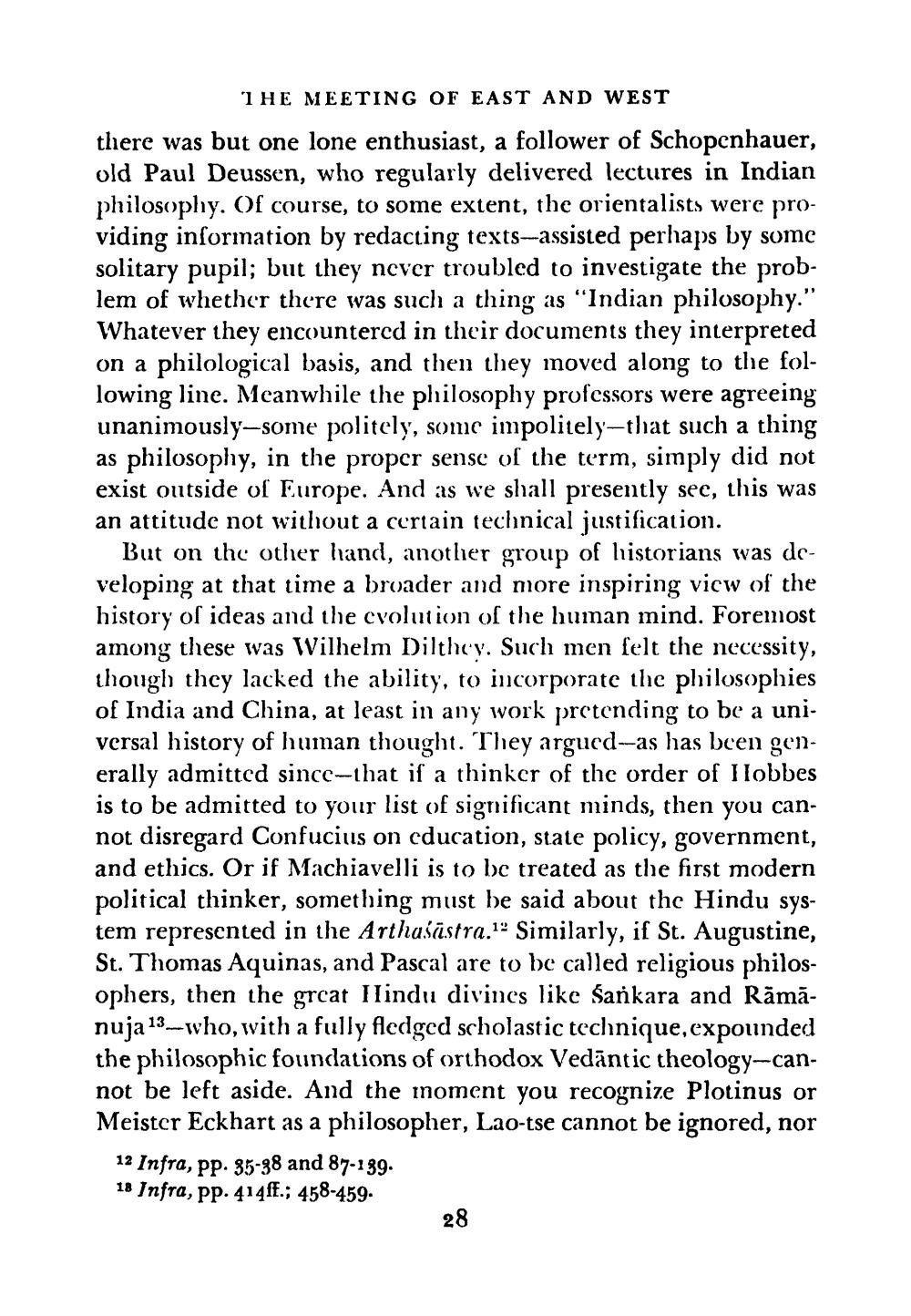________________
THE MEETING OF EAST AND WEST
there was but one lone enthusiast, a follower of Schopenhauer, old Paul Deussen, who regularly delivered lectures in Indian philosophy. Of course, to some extent, the orientalists were providing information by redacting texts-assisted perhaps by some solitary pupil; but they never troubled to investigate the problem of whether there was such a thing as "Indian philosophy." Whatever they encountered in their documents they interpreted on a philological basis, and then they moved along to the following line. Meanwhile the philosophy professors were agreeing unanimously-some politely, some impolitely-that such a thing as philosophy, in the proper sense of the term, simply did not exist outside of Europe. And as we shall presently see, this was an attitude not without a certain technical justification.
But on the other hand, another group of historians was developing at that time a broader and more inspiring view of the history of ideas and the evolution of the human mind. Foremost among these was Wilhelm Dilthey. Such men felt the necessity, though they lacked the ability, to incorporate the philosophies of India and China, at least in any work pretending to be a universal history of human thought. They argued-as has been generally admitted since-that if a thinker of the order of Hobbes is to be admitted to your list of significant minds, then you cannot disregard Confucius on education, state policy, government, and ethics. Or if Machiavelli is to be treated as the first modern political thinker, something must be said about the Hindu system represented in the Arthasästra. Similarly, if St. Augustine, St. Thomas Aquinas, and Pascal are to be called religious philosophers, then the great Hindu divines like Sankara and Rāmānuja 13-who, with a fully fledged scholastic technique, expounded the philosophic foundations of orthodox Vedāntic theology-cannot be left aside. And the moment you recognize Plotinus or Meister Eckhart as a philosopher, Lao-tse cannot be ignored, nor
12 Infra, pp. 35-38 and 87-139. 18 Infra, pp. 414ff.; 458-459.
28




